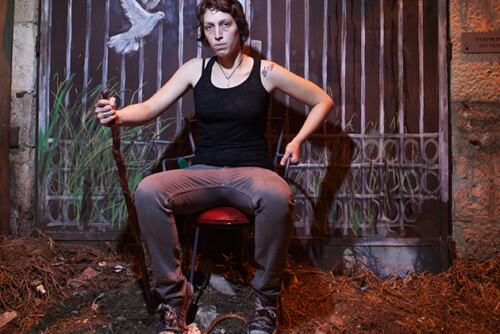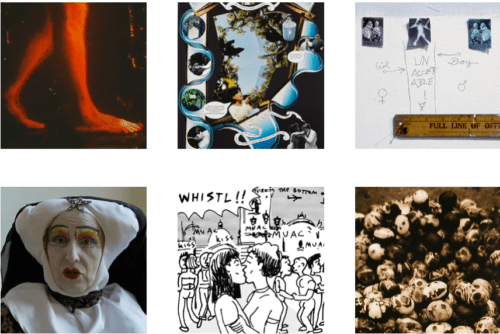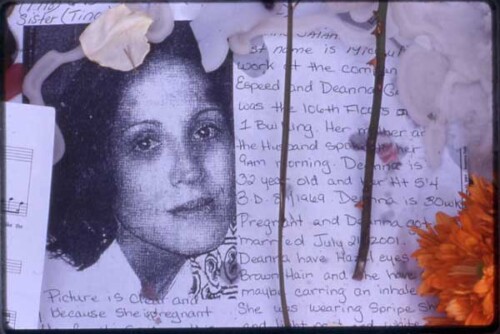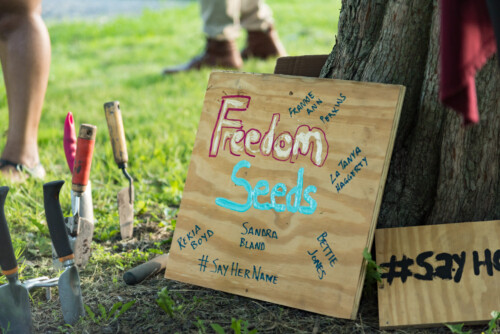4. Queerthinking Religion: Queering Religious Paradigms
Notwithstanding the queer impulse to subvert phallic religions’ institutional, oppressive power, the recent decades and years have seen an increasing academic interest in the spiritual needs, expressions and practices of queer subjects themselves.1 And, while queer spiritual yearnings and needs spawned some queer-inclusive/-embracing religious practices,2 in the contemporary societal discourses on Human Rights, in particular in the Global North, Religious rights and LGBTIQ rights are still topical dichotomies,3 exhibiting productive and genealogical dynamics.4 This inimical discursive current is aided by the above-mentioned idiosyncrasy of the very type of identity politics, which attributes an implicit value to different characteristics and affords religious convictions a priori protection, even when they are harmfully discriminatory. For example, in North-America, institutionalized religion in the form of conservative Christianities is almost invariably seen as incompatible with queer liberation and LGBTIQ subjectivities: religious (here: Christian) cultural codes form vestigial governmental structures by (re-)erecting the spiritual phallus; in this way they play an important part of queerophobic oppression and soul murder. LGBTIQ Christians are hence viewed as suffering from ‘Stockholm syndrome.’ As Johansson puts it:
If they deny the responsibility of the Church for the soul murder that it has committed upon homosexuals, individually and collectively, through aeons of intimidation and oppression, then they are acting as the accomplices of a criminal psychopath, and when the magnitude of the crime that institutional Christianity has perpetrated is revealed to the world, they—and the Church—will suffer unparalleled dishonor.5
I propose calling the particular form of homonormativity which antithetically constructs itself to religion and faith and vocally demands belligerent secularism from its LGBTIQ subjects “homosecularism”. In the consequence of counter-Christian homosecularism, Queer Christians, Theologians and Religionists are left in an uncomfortable position to justify their allegiance to or interest in—per se—’anti-LGBTIQ’ religion. For scholars of religion, the possible coping strategies include the recluse to the academic Ivory Tower or the biographically more challenging option of becoming queer academics-cum-activists. Most Christian Queer Theologians appear to have invented themselves as the latter.
Once the freedom to practice a religion cannot be construed to imply the freedom to oppress the religiously abject or ‘other’, the allegedly essential oppositionality of LGBTIQ identities and religions (as their oppressors) might be bridged by thinking about and asserting spiritual needs and rights as part of a (secondary) Human Rights discourse for queer subjects, lest to a priori cut off the religious/spiritual from the array of possible identitarian expressions for LGBTIQs. In its possibly most explicit form, Harry Hay’s inception of the Radical Faeries caters for this.6 The ensuing dynamic can lead to the creation of inclusive spiritual places; it expresses itself in multiple ways: as creating new queer spiritual spaces (e.g. LoveSpirit Festival7 ) or claiming a queer space even in queerophobic religious contexts and, by doing so, subverting queerophobic institutions; as heightening queer spiritual visibility; as queer appropriation of religious modernisms (science, rationalism discourse) and postmodern spiritualities. Queer religious scholar-cum-activist pragmatism can mean supporting those theologies, which open up institutional religious discourses while avoiding queer retrospect utopias—à la Boswell.8 Queer spiritual re-empowerment consists of the jouissant reclaiming of religious agency for informed, individual empowerment. Empowered spiritual choices can form an agentive foundation for a queer-religious dialogue with the religious phallus—those forms of religion, which are most invested in the wielding of societal power and exclusion. The onus falls on any organized religion in the focus of a (Foucauldian and post-Foucauldian) discourse analysis critique to do some honest soul- (and phallus!-) searching in regards to the past and the present religious oppression and violence—without trying to deflect blame or obscure the past; the trust of LGBTIQ subjects embroidered into the dichotomist discourse of LGBTIQ rights vs. religion can only be advanced by sincere steps towards repent (in Christian terms) and reform on the side of the religious institutions and organizations; for example, exactly such an act of repent was demanded on January 7th, 2016 by 105 senior Anglicans from the Anglican communion9 yet to no avail: on the contrary, the Anglican communion appears to have reverted to a firm anti-LGBT stance by punishing the US Episcopal Church “over its stance on same-sex marriage and homosexuality.”10
Queer-religious relations can be approved above all by firmly basing religious practice on the “human principle”—the principle, which puts the embodied person above any abstract doctrine and establishes concrete compassion and love-in-action above abstract ideas. Any such dialogue also asks from queer subjects to dare compassion and forgiveness—after succeeding in self-compassion and self-forgiveness!—despite any potential residual spiritual wounds LGBTIQ people might individually or collectively bear. In that way, an empowered spiritual choice can become the instrument to healing. Within this process, the re-spiritualization of queerness becomes part of the queer resistance to neo-liberal homonormativity, which expresses itself in late-capitalist; consumerist; and, also, hedonistic homosecularism. Moving beyond these alignments, it appears to me that a successful queer re-spiritualization will need to be preceded by individual value shifts from materialist egotism to living a (post/)queer ethics of embodied compassion-in-action (and—activism). A queerthought spiritual and/or religious identity can naturally draw meaning and jouissance from a “spiritual awakening” (to use, again, religious—namely Theo-Christian—language), which aims at (and performs) an empowered LGBTIQ spiritual embodiment. For me, claiming the responsibility for this empowerment naturally results in an urgent social activist impulse: the queering of religious paradigms.
The new approach to the messy relationship of queerness and religion suggested in this paper departs from the necessary problematizing of the key concepts involved. While questioning the endless extendibility of the term, I propose taking “queer” as a form of intersectional resistance. I further make the argument to rethink religion as value-neutral and morally protean and, in consequence, to challenge religion’s position in the hierarchy of rights. Instead I propose “bodily integrity” as strong principle of societal—legal and ethical—evaluation, while leaving intact the complexity of the embodied religious Self. Finally I argue to move beyond troubling towards the nurturing the embodied subject: queer embodied spirituality and ethics as fruitful and joyful compassion-in-action/activism can successfully move beyond homosecularism translating spiritual yearning into forms of belonging, which resist neoliberal homonormativity.
- Gary Comstock and Susan Henking, eds,Que(e)rying Religion: A Critical Anthology (New York: Continuum, 1997); Scott Thumma and Edward R. Gray, eds., Gay Religion, (Walnut Creek: AltaMira Press, 2005); Melissa Wilcox, Queer Women and Religious Individualism, (Bloomington: Indiana University Press, 2009); Donald Boisvert, and Jay Johnson, eds, Queer Religion. Vol. 1: Homosexuality in Modern Religious History. Vol. 2: LGBT Movements and Queering Religion, (Santa Barbara: ABC-CLIO, 2012). [↩]
- Melissa Wilcox, “Same-Sex Eroticism and Gender Fluidity in New and Alternative Religions,” in New and Alternative Religions in the United States, Eugene V. Gallagher and William M. Ashcraft, eds., (Westport, CT: Praeger/Greenwood, 2006), 243-265. [↩]
- Austin Cline, “Gay Rights & Marriage vs. Religious Liberty: Does Equality for Gays Threaten Religious Liberty in America?” Accessed August 7, 2014. [↩]
- Tina Fetner, How the Religious Right Shaped Lesbian and Gay Activism (Minneapolis, MN: University of Minnesota Press, 2008). [↩]
- Warren Johansson, “Ex Parte Themis: The Historical Guilt of the Christian Church,” in Homosexuality, Intolerance, and Christianity: A Critical Examination of John Boswell’s Work, Warren Johansson, et al., eds. (The Pink Triangle Trust, 2003). [↩]
- Mark Thompson, “This Gay tribe: A Brief History of Faeries,” in Gay Spirit: Myth and Meaning, Mark Thompson, ed. (New York: St. Martin’s Press, 1987), 260-278; Jay Hasbrouck, “Utopian Imaginaries and Faerie Practice: Mapping Routes of Relational Agency,” in Gay Religion, Scott Thumma and Edward Gray, ed., (Walnut Creek: AltaMira Press, 2005), 239-258. [↩]
- LoveSpirit (website). [↩]
- John Boswell, Christianity, Social Tolerance, and Homosexuality: Gay People in Western Europe from the Beginning of the Christian Era to the Fourteenth Century (Chicago: University of Chicago Press, 1980). [↩]
- Jayne Ozanne et. al., “Open Letter To Archbishops” January 2016. [↩]
- “Anglican communion to restrict US Church over gay marriage”, BBC News. Accessed 15 January 2016. [↩]




